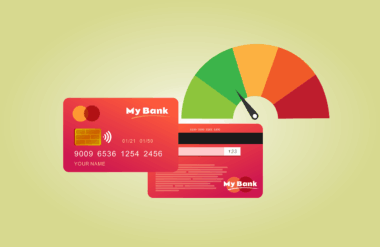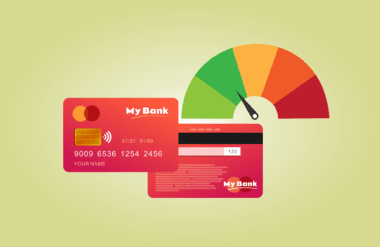How Divorce Can Affect Your Credit Score
Divorce can significantly impact your credit score, intertwining financial obligations with emotional turmoil. When two individuals marry, their financial transactions can create complex credit histories, impacting their scores collectively. Once a divorce is finalized, individuals may find themselves grappling with changes. For instance, joint accounts or shared credit cards may remain active, causing potential score implications. If one spouse fails to make timely payments, the other’s credit score can also suffer due to this shared responsibility. Understanding how divorce factors into your credit score is essential for long-term financial health. It’s crucial to assess both partners’ credit health and address debts appropriately. Divorcing couples should prioritize separating their financial obligations to avoid potential pitfalls. Creating individual bank accounts can serve as a proactive step to safeguard financial identities. Regularly monitoring credit scores post-divorce is also advisable, as subtle changes can indicate deeper issues. Engaging with financial advisors can provide clarity on managing finances after a major life change. Proactive measures can mitigate adverse effects on credit scores, helping individuals rebuild their financial lives post-divorce.
Impact of Joint Accounts on Credit
One significant factor is the status of joint accounts. Many couples maintain joint bank accounts and credit cards during their marriage as a means of managing shared expenses. However, when a divorce occurs, these accounts can lead to complications. If one partner continues to use a joint credit card after separation while the other does not, it can affect both parties’ credit scores adversely. Each payment history, utilization rate, and even late payments will be reported on both individuals’ credit reports, causing potential harm to both credit scores. Couples should make concerted efforts to close or separate these accounts as soon as possible to prevent financial anguish. Dividing debts equitably is essential, and documenting agreed-upon obligations can reduce disputes later. Creditors typically will not remove a joint account unless all parties involved consent, which emphasizes the importance of clear communication. Seek advice from a legal professional about how to partition debts effectively. Therefore, navigating joint accounts requires diligence, ensuring that each spouse is aware, and keeping proactive steps to maintain personal credit health.
Another dimension to consider is the division of assets and how they relate to credit scores. During divorce proceedings, couples may have to divide assets like houses, cars, or investments. The division process can be complicated, especially with mortgages, as a house with an existing mortgage will affect credit. If the home is awarded to one spouse who cannot afford the payments, while the mortgage remains in both names, the other spouse’s credit score can take a hit. Retaining shared assets necessitates reassessing individual credit responsibilities. Refinancing the mortgage under the retaining spouse’s sole name can prevent further credit issues with the ex-partner. Documenting responsibilities during asset division is crucial in avoiding future misunderstandings that may affect credit scores. A trial separation of finances prior to divorce can also help clarify each party’s financial obligations. Consulting with a financial advisor can illuminate these issues and provide strategies for managing credit health effectively during divorce. Awareness and preparation can smooth potential disruptions in credit during this challenging period of life.
Your Credit Report Post-Divorce
Post-divorce, individuals should obtain a copy of their credit report to examine their credit status thoroughly. Reviewing these reports is essential to identify any unauthorized transactions or lingering obligations that could influence scores negatively. A credit report will detail historical account status and any current debts left under previous ownership. Understanding what’s on the report will help individuals strategically decide how to manage their finances moving forward. Make sure to initiate a refresher review every few months, as this practice can reveal unexpected issues before they escalate. Dispute any discrepancies immediately to safeguard your score and seek professional guidance if necessary. Using the insights gained from credit reports will equip individuals with knowledge about what steps are necessary for rebuilding credit post-divorce. Additionally, individuals should consider credit counseling services that focus on life transitions. Guidance from experts can offer tailored advice as one navigates the complex landscape of personal finance. Empowering oneself through these resources can help in establishing a strong financial foundation after a divorce.
Moreover, it’s essential to highlight the emotional effects of dealing with finances during divorce. Navigating financial negotiations can lead to heightened stress levels that may cloud judgment. Emotional decisions can inadvertently lead to poor financial choices, resulting in further implications on credit scores if not mitigated. Individuals should focus on maintaining emotional well-being throughout this process, as stress can have indirect effects on managing finances. Building a supportive network of friends or family can help alleviate feelings of isolation. Engaging in self-care activities can also promote a balanced outlook. Taking dedicated breaks from intense financial discussions can be enlightening. Additionally, consider working with a mediator to reach amicable financial agreements, as this can foster clearer communication. Emotional stability plays a crucial role in making sound financial decisions post-divorce, significantly affecting one’s credit health. Providing yourself grace amid financial upheaval is important, and remember that recovery is a process. Set realistic financial goals, and allow time for healing before diving back into comprehensive financial planning.
Rebuilding Credit After Divorce
Once the dust settles post-divorce, the real work begins when it comes to rebuilding credit. Individuals may find their scores have dropped due to various factors associated with divorce. Establishing new credit accounts, or perhaps reclaiming the credit history, is a step toward recovery. Consider applying for secured credit cards which can help establish new positive credit lines. These accounts typically require an upfront deposit that serves as collateral, minimizing risk for lenders. Ensuring timely payments on these accounts will positively impact credit scores over time. Budgeting to establish a strategy for managing new financial responsibilities is critical in this phase. Creating a comprehensive financial plan can alleviate concerns about future expenditures and help avoid falling into debt once more. Setting monthly limits on spending and adhering to them is essential practice. Remain vigilant about tracking your financial status, establishing savings, and addressing debts incrementally yields positive outcomes for credit health. Learning about personal finance through education resources can empower individuals to better manage their situations moving forward.
Additionally, individuals should be aware of the role of credit utilization in credit scores. Credit utilization refers to the amount of credit used compared to the total available credit. A lower utilization rate generally reflects positively on credit scores, while a higher rate may indicate potential risk. After a divorce, many people find themselves with decreased credit limits, leading to higher utilization percentages. To combat this, individuals can work on reducing outstanding debts and avoiding new debt accumulation. Paying off balances more frequently, rather than just monthly cycles, can also keep utilization in check. Regularly monitoring overall spending can help maintain responsible finances. Consider automating payments to align with income schedules, thus ensuring timely completion. Avoiding overspending during the rebuilding phase is crucial in maintaining good credit health. Settling disputes on old debts promptly can substantially benefit one’s credit health as well. Education around financial management techniques tailored to rebuilding credit will also serve individuals as they navigate this financial landscape. With time and effort, individuals can improve their credit profiles after a divorce.
Financing a fresh start post-divorce often entails understanding credit parameters like loans and interest rates. When seeking loans to finance new endeavors, lenders will consider credit scores heavily, as it serves as a reflection of creditworthiness. Individuals with recently affected credit scores might find it difficult to secure favorable rates for loans. This can lead to increased financial strain for those trying to establish themselves anew. It is vital to approach lenders with as much credit repair completed as possible to secure better terms. Exploring options like credit unions or community banks for competitive rates may also open additional doors. Being pre-qualified for loans is an intelligent strategy, as it can help in managing future financial obligations. Awareness of all terms and conditions before signing any agreements will also benefit individuals in the long run. Always remember that the rebuilding process takes time; patience will be key as old debts are cleared and scores re-calibrated. Fostering financial literacy will aid long-term sustainability in finances post-divorce. Following proactive steps will ultimately permit individuals to reclaim financial independence successfully.








